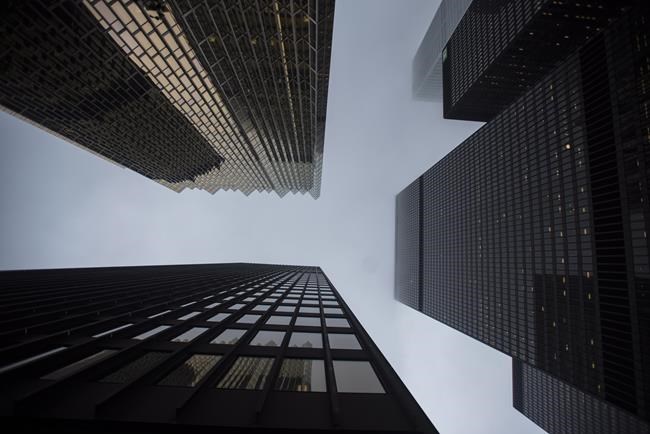TORONTO — The head of saąúĽĘ´«Ă˝'s banking regulator says he's looking to increase the amount of reserve capital that banks need to hold to protect against climate change risks.Â
Peter Routledge, who leads the Office of the Superintendent of Financial Institutions, said Monday that while it likely won't happen this year, it's important that banks build up capital buffers this decade to guard against potentially increasing volatility ahead.
“We will do all that we can to make sure our financial systems can weather the rising incidence and severity of climate events that will occur in this decade and the next.”
He said that market players increasingly recognize the risks of climate change but that the regulator still has to ensure enough is being done.
“We will have to ask hard questions of the entities we supervise to ensure they have sufficient capacity in the form of buffers, capital and otherwise, and risk management discipline, to absorb intensifying physical climate risks.”Â
Speaking at RBC's Canadian bank CEO conference, Routledge said it's important to increase resilience to both the physical risks of climate change and the transition risks as the global economy shifts towards net zero emissions.Â
He says that while the world may start moving away from emissions this decade in a more measured approach, action could be delayed until next decade — when any transition would be more rushed and volatile.Â
Routledge says that along with work on the buffer, the regulator will launch discussions with financial institutions as it looks to produce climate risk management guidelines later this year.Â
He said OSFI wasn't first, but is an early mover internationally on guidelines that are still limited as measurement standards and policies are still being defined.Â
In the U.S., the Office of the Comptroller of the Currency, which regulates national banks, put out draft guidelines on climate in December that spells out some expectations on how banks look at climate-related risks and incorporates those risks into strategic planning.Â
RBC chief executive Dave McKay said it was still early days in the transition, without clear plans to get towards net-zero economies.
“This is a journey. We’re just learning how to measure climate and greenhouse gas emissions in our portfolio. We’re just learning and trying to understand inherent risks and volatility. This is an evolution."
He said that while there is still much unknown about the energy transition, what is clear is that saąúĽĘ´«Ă˝ will require a lot of capital to make the shift so the government should be cautious about its policies.Â
“I do want to stress that maintaining competitive policies, competitive capital structures, competitive tax structure in this country is essential to maintaining a prosperous saąúĽĘ´«Ă˝ and a competitive saąúĽĘ´«Ă˝ into the future.”
This report by The Canadian Press was first published Jan. 10, 2022.
Companies in this story: (TSX:RY)
Ian Bickis, The Canadian Press



